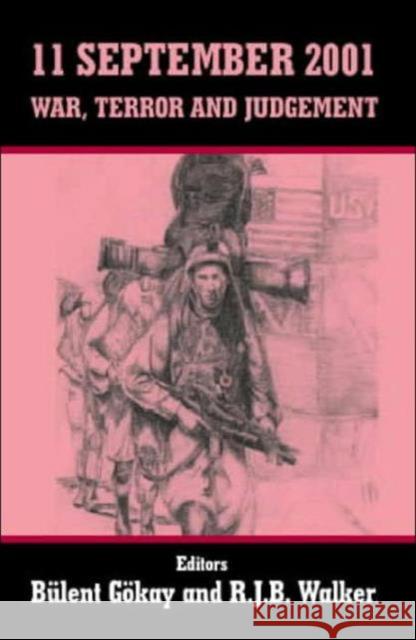11 September 2001: War, Terror and Judgement » książka
11 September 2001: War, Terror and Judgement
ISBN-13: 9780714655055 / Angielski / Twarda / 2003 / 216 str.
11 September 2001: War, Terror and Judgement
ISBN-13: 9780714655055 / Angielski / Twarda / 2003 / 216 str.
(netto: 699,68 VAT: 5%)
Najniższa cena z 30 dni: 724,19
ok. 22 dni roboczych.
Darmowa dostawa!
What special vulnerabilities does the world of the 21st century have to terrorist attacks? What kind of role does the United States see itself playing as the world's only superpower in the coming decades? How should we now characterize the conduct of the US foreign policy? Answers to such questions are perhaps not much clearer now than they were immediately after the attacks, but one of the more positive effects of these attacks has been to stimulate much serious discussion about them, and thus about the place of violence about changing forms of warfare, about different forms of terror, and about challenges to prevailing accounts of the legitimacy of violence in contemporary political life in the context of emerging and in many respects dangerously unstable structures of power and authority on a global scale. These essays do not constitute a unified perspective on what happened on 11 September 2001, and the US response to it. They are perhaps most usefully read as an experiment in writing contemporary history as it evolves. Some essays contradict others, some are quite specific, and others generalize very broadly. They all affirm, however, that there is no simple answer to difficul











